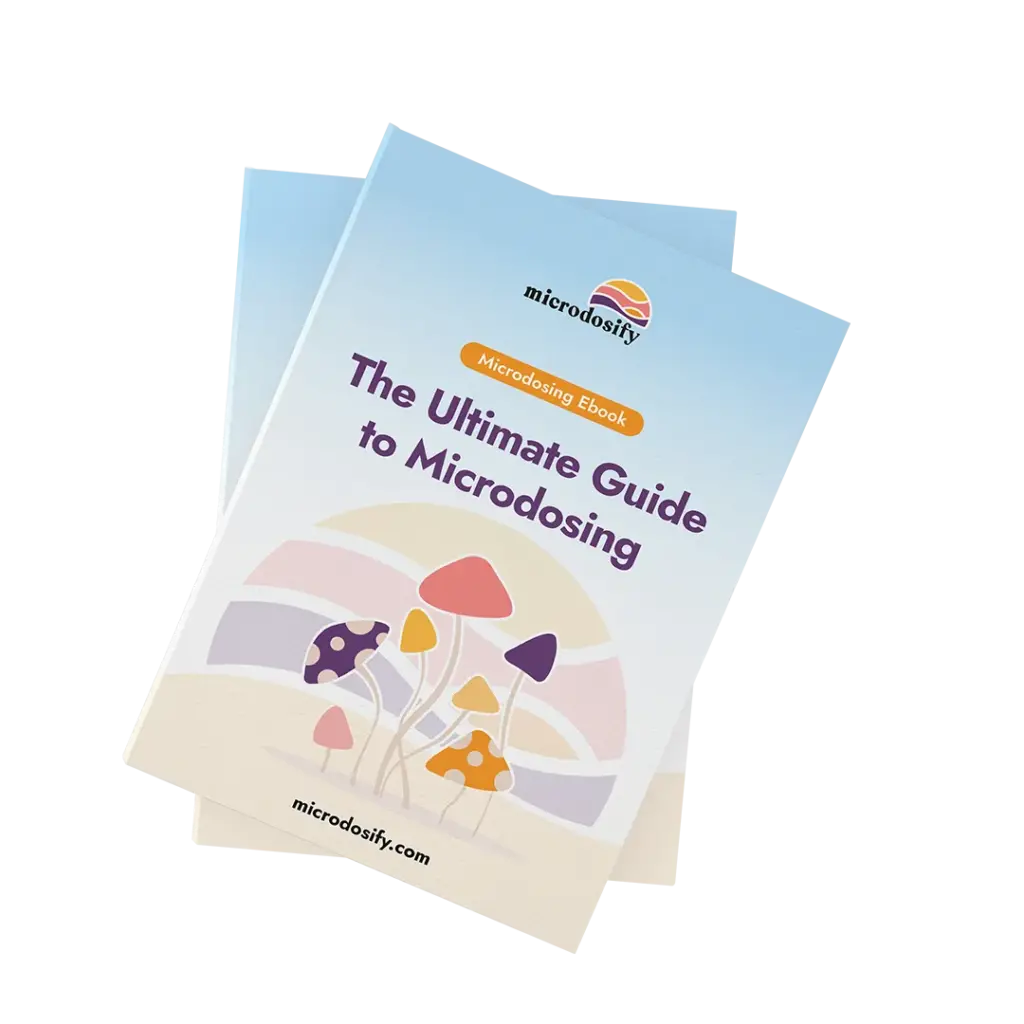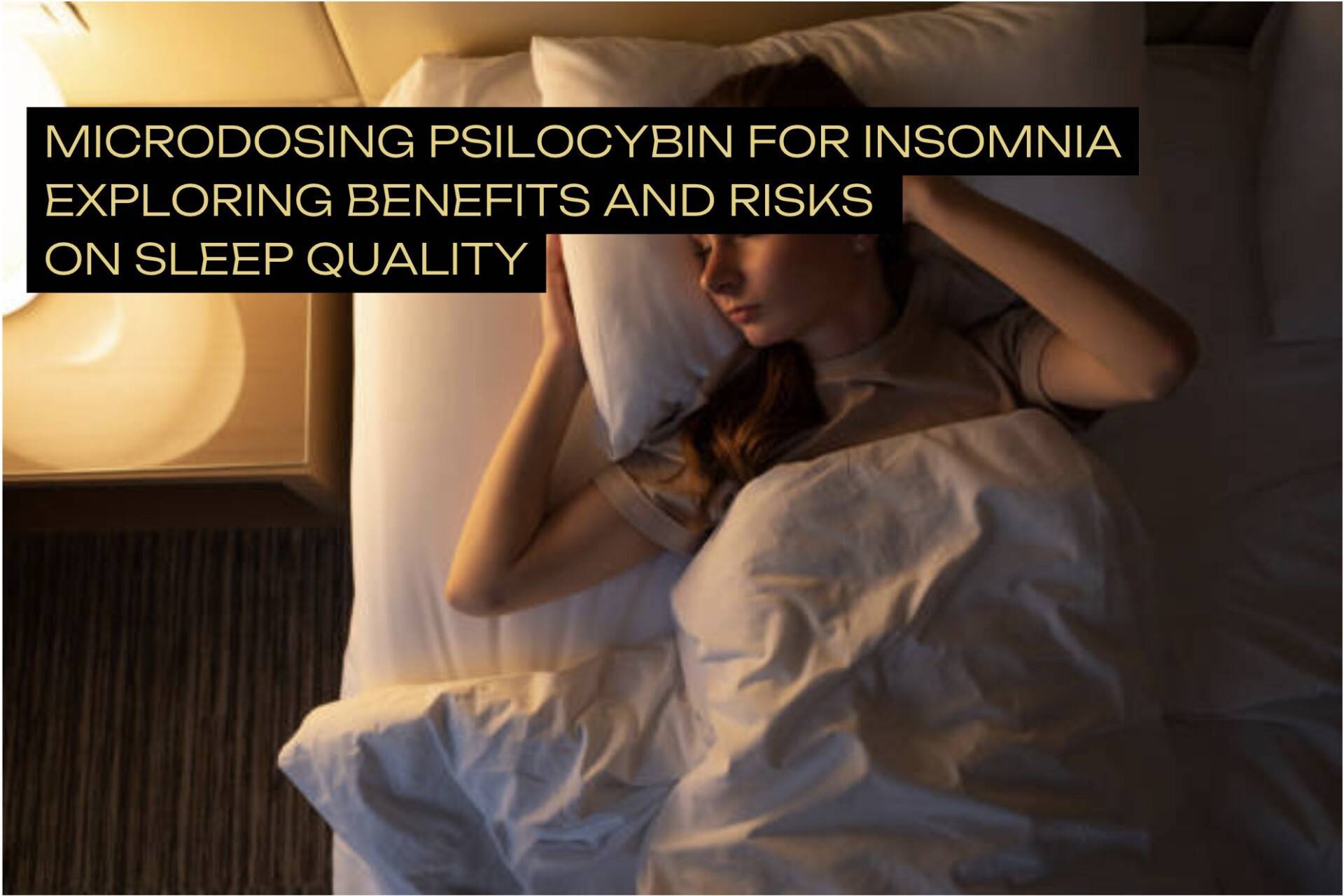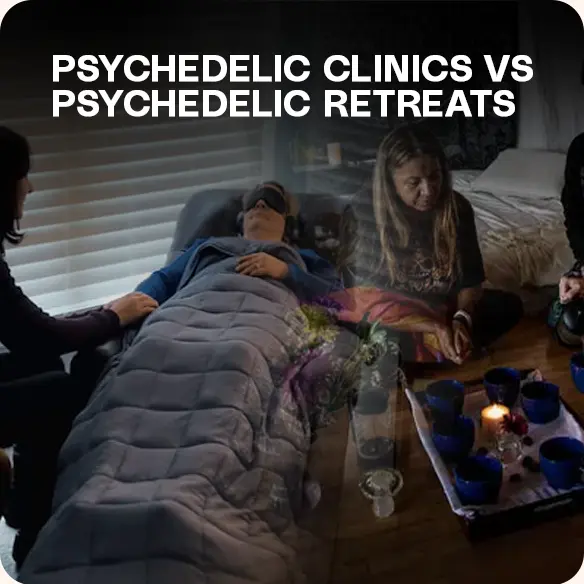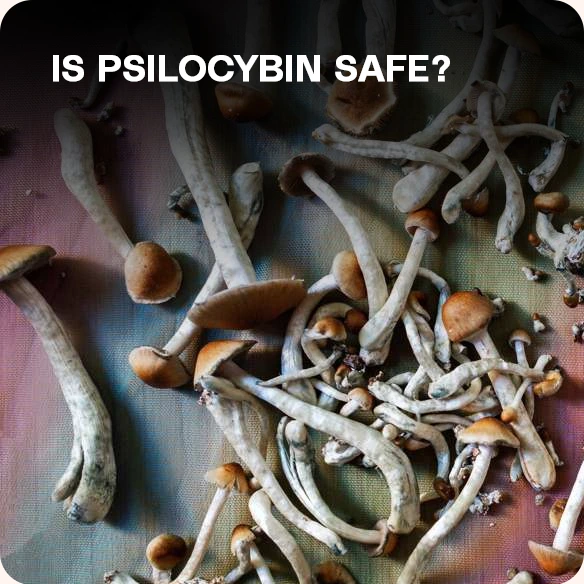Microdosing for insomnia uses sub-perceptual, morning doses of psilocybin to nudge sleep architecture (REM and slow-wave), mood, and stress—without intoxication.
Early evidence and wearables data suggest benefits for some, though results are mixed and timing matters. Track sleep, start cautiously, and consider structured protocols.
Below are the key takeaways to guide practice.
Key Takeaways:
- Microdosing psilocybin may improve sleep quality by influencing REM and slow-wave stages, contributing to more restful sleep.
- The benefits of microdosing for sleep include improved mood, reduced anxiety, and enhanced neuroplasticity, which can lead to better sleep quality.
- Microdosing for sleep is generally well-received, with many people experiencing positive changes in their sleep patterns and overall well-being.
What Is Microdosing Psilocybin for Sleep?
Microdosing psilocybin for sleep means taking small, sub-perceptual morning doses of psilocybin to influence sleep quality and architecture—REM and slow-wave cycles—while avoiding intoxication; people track outcomes with wearables, yet evidence is mixed and some individuals report insomnia or disturbed sleep.
These small doses, often ranging from 1 to 5 mg, are typically taken in the morning to avoid interference with the sleep cycle at night.
Modern microdosing practices generally involve daytime microdosing to minimize sleep disruption.
Even at low doses, psilocybin can influence sleep architecture, affecting REM and slow-wave sleep, which are crucial for cognitive restoration and emotional regulation.
Low doses are used to avoid perceptible psychedelic effects while still influencing sleep architecture.
If you’re new to microdosing, the 30-Day Experience Program offers a structured, step-by-step path to explore its cognitive and sleep-related benefits with confidence.
Wearable devices, such as Fitbit, are increasingly used in sleep research for detecting sleep durations and collecting sleep data recorded over multiple nights.
Fitbit sleep data provides both summary and sleep granular data, allowing for detailed analysis of sleep times and sleep durations.
While many people find microdosing for sleep interesting, the scientific community is still working to understand its full effects on sleep duration, quality, and disruptions.
Some individuals report that microdosing can subjectively impair sleep quality, experiencing insomnia or trouble sleeping, but these reports are contrasted by objective sleep measurements from wearables.
Learn more about how psilocybin rewires our brain.
What was the study design and methodology of Microdosing for Insomia?
A double-blind, placebo-controlled trial (n=80 healthy males) randomized participants to 10 µg LSD base or placebo sublingually every three days for six weeks.
Sleep was tracked naturalistically via Fitbit (REM, SWS, latency, duration) with rigorous night-assignment and linear mixed-effects modeling to assess group and individual effects.
To better understand how microdosing psychedelic supplements might influence sleep and mental health, researchers designed a rigorous double-blind, placebo-controlled study focusing on lysergic acid diethylamide (LSD).
The study recruited 80 healthy male participants, who were randomly assigned to either the LSD group or a placebo group.
Each participant self-administered a low dose of 10 µg LSD base or an inactive placebo sublingually every three days over a six-week period, ensuring that the effects of microdosing could be observed across multiple sleep cycles and activity patterns.
Throughout the study, participants’ sleep and activity were closely monitored using Fitbit Charge 3/4 devices.
These wearables provided continuous, naturalistic sleep data, capturing detailed information on sleep duration, sleep stages (including REM sleep and slow wave sleep), and physical activity patterns.
By leveraging this technology, researchers could assess not only total sleep observed but also granular changes in sleep architecture, such as REM sleep duration, sleep latency, and the distribution of sleep stages across the nocturnal sleep cycle.
To ensure the accuracy of sleep data, the study used Fitbit’s “isMainSleep” flag to filter out naps and focus on the main nocturnal sleep cycle resulting from each dosing day.
Sleep data was assigned to the correct night using the “sleep start date” and a 9 am cut-off, allowing for precise and accurate sleep date assignment.
This approach enabled the researchers to detect subtle changes in sleep patterns, particularly the night after microdosing, and to compare these changes between the LSD and placebo groups.
The primary outcome measure was the change in sleep duration, with a special focus on REM sleep duration, from baseline to the night after microdosing.
Secondary outcomes included shifts in sleep quality, sleep latency, and correlations with physical activity patterns.
The study also explored how these sleep alterations might relate to mood disorders, such as major depressive disorder and post traumatic stress disorder, and whether microdosing could help address sleep disturbances commonly reported in these mental health conditions.
By using linear mixed-effects modeling, the researchers could account for both group-level effects (LSD vs. placebo) and individual variability, providing robust insights into the effects of microdosing on sleep and activity.
The findings suggest that microdosing lysergic acid diethylamide may increase overall sleep duration and particularly REM sleep duration, which could have positive implications for mood and mental health.
However, the study also highlights the need for further research to fully understand the long-term effects and potential risks of using psychedelic supplements as a therapeutic tool for mental health disorders.
Importantly, this study demonstrates the value of wearable sleep monitoring in capturing objective sleep measures and naturalistic sleep data outside the sleep laboratory.
Such approaches can help researchers and clinicians better assess sleep and activity patterns in real-world settings, paving the way for more personalized and effective interventions for sleep difficulties and mental health issues.
What Are the Benefits of Microdosing for Insomnia?
Microdosing psilocybin may aid insomnia by improving mood and reducing anxiety, modulating sleep architecture (REM and slow-wave activity), and encouraging bedtimes the day after dosing; however, responses vary, and some individuals report sleep disruption, so self-monitoring and guidance remain essential.
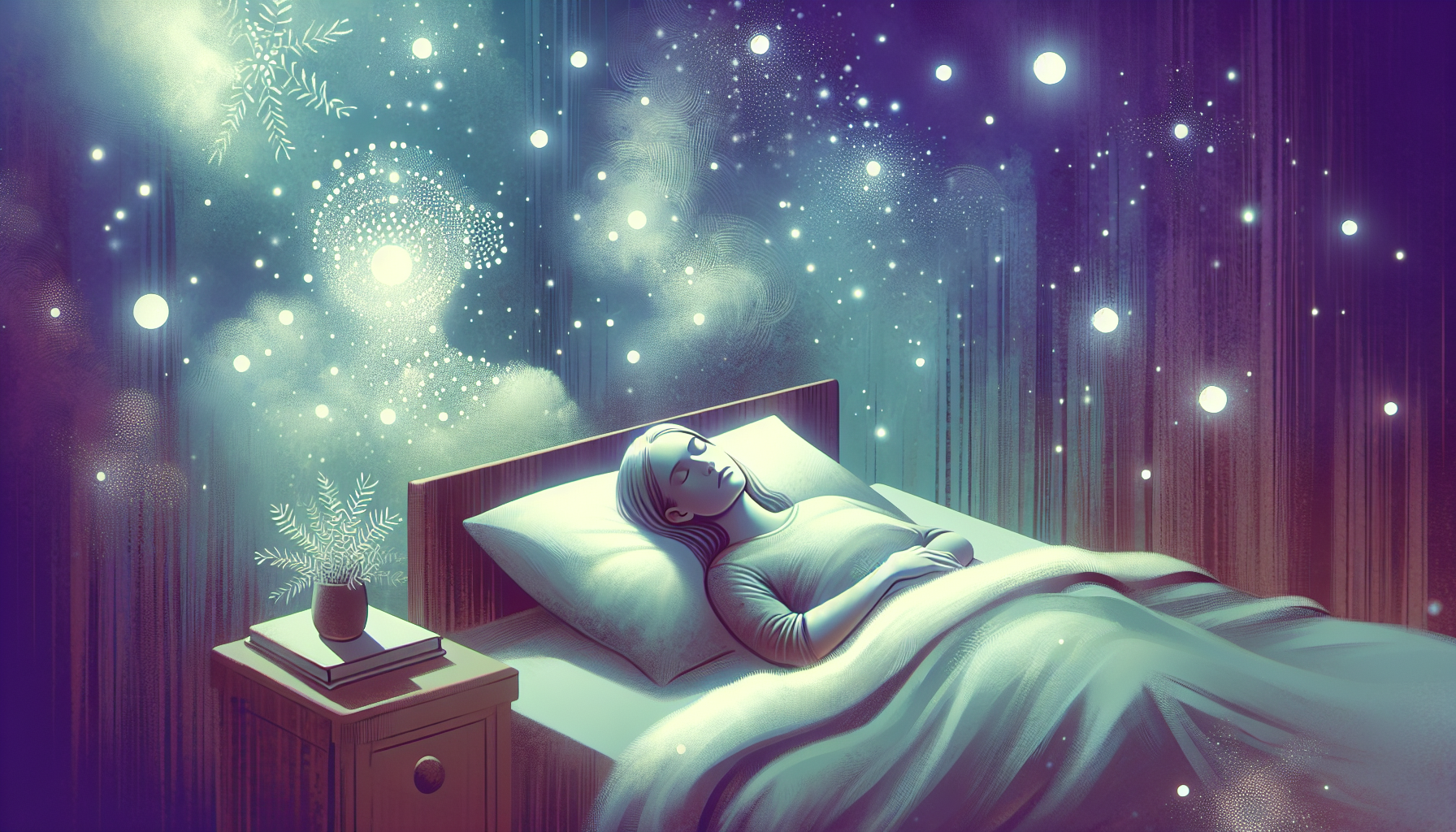
Microdosing psilocybin is becoming popular as a potential remedy for insomnia because of its ability to improve overall well-being and regulate sleep patterns.
Some studies, like the one by Prochazkova et al. (2018), suggest that microdosing psilocybin could increase sleep duration and even enhance REM sleep the night after dosing.
Research has shown that lsd increases sleep duration, with participants in the lsd group experiencing longer sleep duration the night after dosing.
Some studies observed that participants went to bed earlier on the night after microdosing.
It is also notable that some individuals may require extra sleep following microdosing, especially after daytime psilocybin administration.
This interaction with different sleep stages may lead to not only a restful night but also a more emotionally balanced life.
Learn more about the benefits of microdosing psilocybin.
Improved Mood and Reduced Anxiety
Psilocybin, known for its effects on serotonin receptors, has been linked to better mood and less anxiety, which can indirectly improve sleep.
Many people who microdose report feeling happier and less anxious, leading to fewer sleep disturbances and a more restful night’s sleep.
A study by Polito and Stevenson (2019) involved 98 participants who microdosed psilocybin.
Participants filled out surveys about their well-being, stress levels, and cognitive flexibility.
The study found that many people reported better mood and less anxiety. These improvements can help with conditions such as:
- Depression
- Anxiety
- PTSD
- Mood disorders
- Bipolar disorder
- OCD
- ADHD
By managing these symptoms, microdosing psilocybin can lead to better sleep quality and overall well-being.
To find out which combination is best for mood balance or relaxation, read our Calm vs. Create vs. Focus comparison — it’s perfect for first-time microdosers exploring options for sleep or stress.
Enhanced Neuroplasticity
Neuroplasticity is the brain’s ability to reorganize itself by forming new neural connections, which is important for sleep and cognitive function.
Assessing sleep stages, including REM and slow wave NREM sleep, is important for understanding the effects of microdosing.
Psilocybin interacts with serotonin receptors, promoting neuroplasticity, which can affect sleep patterns, particularly REM sleep and slow-wave activity.
These sleep stages are crucial for memory consolidation and emotional regulation.
Psilocybin and similar substances can prolong REM sleep latency and may suppress REM sleep differently than traditional antidepressants, which are known to suppress REM sleep more consistently.
Changes in slow wave NREM sleep are a key marker of neuroplasticity and sleep function.
While psilocybin can sometimes suppress slow-wave activity during the first sleep cycle, this change is seen as a marker of sleep-related neuroplastic changes, suggesting a relationship between microdosing and deep sleep stages.
Anecdotal Evidence
In a study conducted by James Fadiman in 2011, the participants reported better sleep quality and longer sleep duration, particularly the night after dosing.
For example, some of them mentioned that microdosing helped them fall asleep faster and wake up feeling more refreshed.
However, it is important to note that some individuals also report sleep disturbances after microdosing, indicating that not all experiences are uniformly positive.
Additionally, a Reddit forum where people shared their experiences with microdosing showed similar positive outcomes.
Participants reported improved mood, reduced anxiety, and better sleep quality, suggesting a link between microdosing and improved sleep patterns.
These stories add to the growing body of evidence supporting the benefits of microdosing for sleep.
What Are the Risks and Challenges of Microdosing for Sleep?
Microdosing for sleep carries risks: possible blood-pressure changes, supplement interactions, and exacerbation of psychiatric or eating disorders.
Timing errors can disrupt REM, delay sleep onset, and trigger vivid dreams. Evidence is mixed—screen carefully, consult a clinician, dose early/daytime, and monitor closely.
While microdosing for insomnia shows promise, it’s important to approach this practice with caution.
Before starting microdosing, individuals should be screened for pre-existing conditions such as high blood pressure, resting blood pressure abnormalities, psychotic disorder, psychotic disorders, and eating disorders, as these may increase the risk of adverse effects.
Those taking psychotropic medication or with a history of any mental health condition should consult a healthcare provider prior to beginning microdosing.
Microdosing can cause transient changes in blood pressure and has central nervous system penetration, which may have implications for safety, especially in individuals with underlying health concerns.
Scientists are still studying the effectiveness of microdosing for sleep improvement.
Finding the right balance is crucial, as what helps one person may not work for another. Careful consideration and monitoring are key to using microdosing safely for better sleep.
Disruption of Sleep Patterns
For those considering microdosing to help with sleep, timing is crucial. Taking psilocybin too close to bedtime may affect sleep quality and disrupt the natural sleep cycle.
Psilocybin can prevent people from entering REM sleep and increase the time it takes to fall asleep.
Proper timing and dosage are essential to avoid these disruptions and achieve better sleep.
Vivid Dreams and REM Sleep Latency
Another aspect to consider is psilocybin’s effect on dreams. While it can delay the start of REM sleep, it may also alter REM sleep periods, affecting both the timing and intensity of dreams.
These intense dreams, though not always bad for sleep quality, can be unsettling and affect how sleep feels.
Scientific Evidence
The scientific understanding of microdosing’s effect on sleep is still developing.
In a study published in the British Journal of Psychiatry, researchers examined the effects of psilocybin on brain activity and noted changes in sleep patterns, including altered REM sleep and increased vividness of dreams reported by participants.
Another study published in Frontiers in Pharmacology investigated the effects of psilocybin on sleep architecture.
Participants reported no significant changes in overall sleep quality or sleep latency, but some did mention more vivid and intense dreams.
Recent research published in J Clin Sleep Med has also explored the pharmacological impacts of psychedelics on sleep function, using both subjective reports and objective sleep measurement techniques.
Ongoing studies aim to clarify how psilocybin and related substances influence sleep function, including REM sleep, sleep latency, and overall sleep quality.
These findings highlight the complexity of sleep and the need for more detailed research to draw clear conclusions.
Further studies are necessary to understand the full impact of microdosing on sleep quality and patterns.
Read more: Side effects of psilocybe cubensis
What Are the Differences Between Microdosing and Traditional Sleep Aids?
Compared with traditional sleep aids, microdosing psilocybin modulates REM timing/quality rather than simply inducing drowsiness, and effects are dose-timing sensitive.
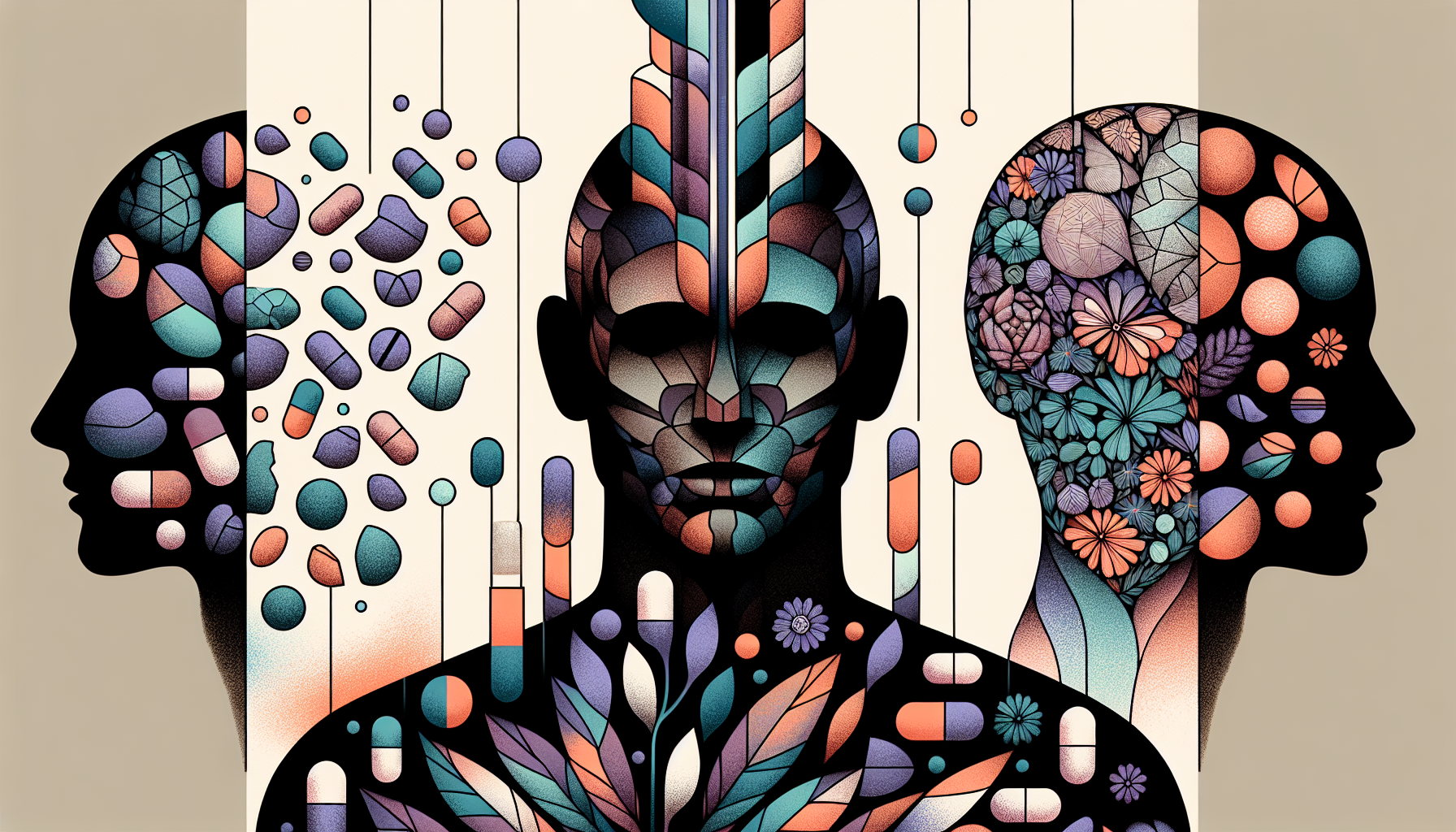
SSRIs also alter REM but require long-term daily use and broader side-effects; OTC antihistamines sedate; melatonin entrains circadian rhythm cycles.
Microdosing psilocybin is different from traditional sleep aids. Psilocybin is a psychedelic supplements with unique effects on sleep compared to traditional sleep aids.
While SSRIs, over-the-counter medications, and natural supplements like melatonin each have their own ways of managing sleep disorders, psilocybin interacts with sleep in a unique way.
Selective Serotonin Reuptake Inhibitors (SSRIs)
Selective Serotonin Reuptake Inhibitors (SSRIs), like Prozac and Zoloft, commonly prescribed for depression, are similar to psilocybin in their effect on REM sleep.
Both can make the time it takes to enter REM sleep longer and reduce the duration of REM sleep.
However, unlike psilocybin, SSRIs can come with many side effects and are typically taken over long periods.
Psilocybin does not change non-REM sleep stages, making it a better option for those looking to manage sleep issues without long-term medication.
Our CALM microdosing capsules are formulated to gently ease anxiety and promote emotional relaxation — ideal for evening clarity and more restful sleep.
For individuals exploring microdosing to support calmness and emotional relaxation before rest, Calm Microdosing Capsules are formulated to gently ease anxiety and promote restful sleep without the dependency associated with traditional medications.
Over-the-Counter Sleep Medications
Over-the-counter sleep aids like Benadryl and Unisom are designed to make you drowsy and help you fall asleep.
They work differently from psilocybin. These medications mainly focus on making it easier to fall asleep, while psilocybin affects the time it takes to enter REM sleep and the duration of REM sleep without changing the total sleep time or efficiency.
Natural Alternatives
Natural sleep aids like melatonin help regulate sleep-wake cycles and promote relaxation, which is different from how psilocybin works.
Psilocybin can affect the time it takes to enter REM sleep and has been linked to changes in brain function during sleep. This offers a different way to improve sleep quality.
What Are the Best Practices for Microdosing to Improve Sleep?
Microdose for sleep by dosing in the morning, following a structured protocol (e.g., Stamets alternating days) to minimize tolerance and avoid delaying sleep onset.
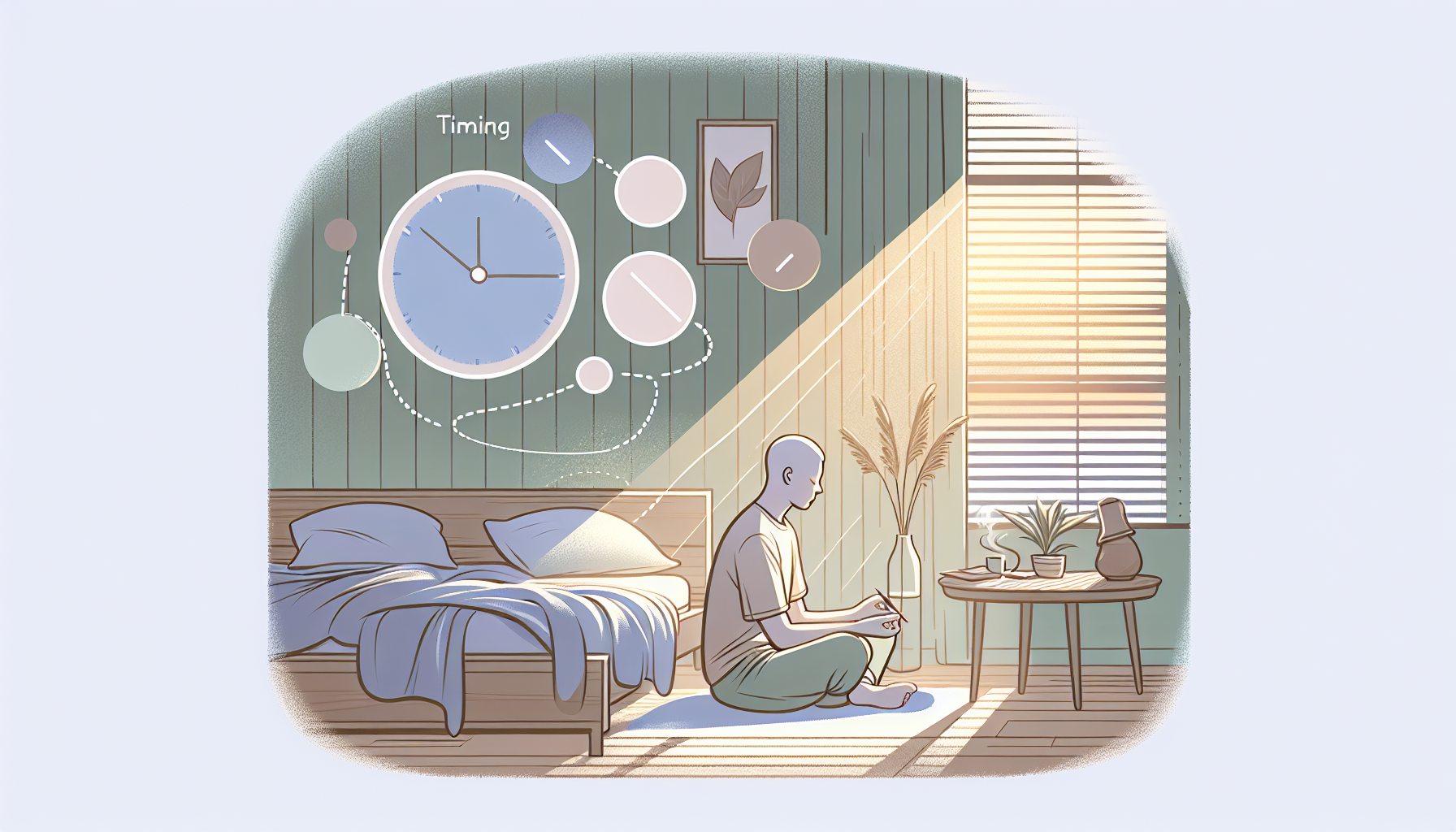
Track outcomes with wearables (sleep stages, latency, duration) and adjust dose/timing based on objective data and side-effects.
For those considering microdosing to improve their sleep, it’s important to focus on how and when to dose.
Best practices suggest dosing in the morning and sticking to a protocol to get the most benefits while reducing risks.
Microdosing can influence sleep onset, so taking your dose earlier in the day may help avoid delays in falling asleep.
Explore the Stamets protocol to see how alternating microdosing days can optimize long-term results while preventing tolerance.
Timing and Dosage
Timing and dosage are key when it comes to microdosing for sleep. To avoid disrupting the sleep cycle, it’s recommended to take the dose in the morning.
Monitoring Sleep Quality
Tracking sleep quality helps understand how microdosing affects sleep. Wearable devices, like fitness trackers, can provide detailed information on sleep patterns and stages.
This data allows you to adjust your dosing to improve sleep. Using these devices, you can make informed decisions based on reliable sleep data.
What Are the Long-term Effects of Microdosing on Sleep?
The long-term effects of microdosing on sleep are still not fully understood. Some studies suggest changes in sleep patterns, such as increased time to enter REM sleep and reduced deep sleep activity.
More research is needed to understand how microdosing affects sleep over the long term.
Conclusion
In conclusion, microdosing psilocybin may help improve sleep quality by influencing REM patterns, mood, and brain function in ways distinct from traditional sleep aids.
While many people report positive results, it’s important to continue exploring and researching due to mixed scientific evidence and potential risks.
For a gentle introduction to sleep-supportive microdosing, our Calm Microdosing Capsules are crafted with a balanced formula that supports mood stability, relaxation, and nighttime recovery.
If you’re new to microdosing or want expert guidance on timing, dosage, and safety, consider booking a 1-Hour Coaching Call with a certified Microdosify Coach. Personalized support can help you build a mindful, restorative sleep routine backed by evidence and balance.
Discover calm, clarity, and better rest — explore Microdosify’s microdosing capsules to start your journey toward naturally improved sleep today.
Sources:
- Schenberg, E. E., de Castro Comis, M. A., Alexandre, J. F. M., & Chaves, B. R. (2014). Treating drug dependence with the aid of ibogaine: A retrospective study. Journal of Psychopharmacology
- Carhart-Harris, R. L., et al. (2020). Trial of psilocybin versus escitalopram for depression. New England Journal of Medicine
- Schindler, E. A., Sewell, R. A., Gottschalk, C. H., et al. (2015). Exploratory controlled study of the migraine-suppressing effects of psilocybin. Neurotherapeutics
- Mason, N. L., Kuypers, K. P. C., Müller, F., Reckweg, J., Tse, D. H. Y., Toennes, S. W., Hutten, N. R. P. W., Jansen, J. F. A., Stiers, P., & Ramaekers, J. G. (2021). Me, myself, bye: Regional alterations in glutamate and the experience of ego dissolution with psilocybin. Neuropsychopharmacology
- Barrett, F. S., & Griffiths, R. R. (2017). Classic hallucinogens and mystical experiences: Phenomenology and neural correlates. Current Topics in Behavioral Neurosciences
Frequently Asked Questions (FAQs)
What is microdosing?
Microdosing involves consuming small amounts of psilocybin mushrooms to improve cognitive and emotional well-being.
Can microdosing improve sleep?
Yes, microdosing can improve sleep, but more research is needed due to mixed study results.
How does psilocybin affect sleep architecture?
Psilocybin can lead to longer times to enter REM sleep and shorter REM sleep duration. It can also reduce slow-wave activity in the first sleep cycle, affecting overall sleep patterns.
Is it recommended to take sleeping pills after microdosing?
No, it is not recommended to take sleeping pills after microdosing without consulting a healthcare provider to understand the potential risks.
When is the best time to microdose?
The best time to microdose is in the morning to avoid sleep disruptio
